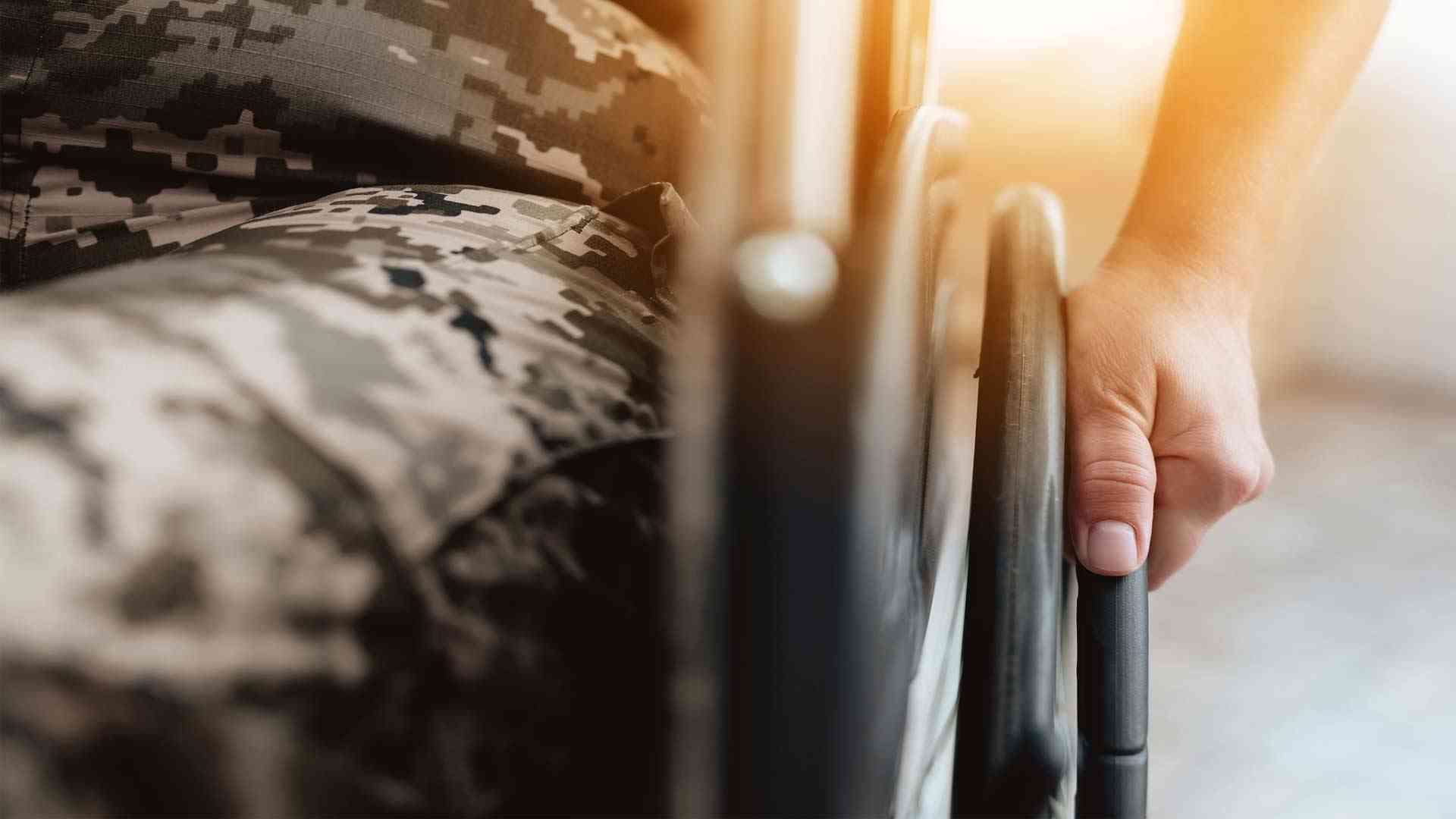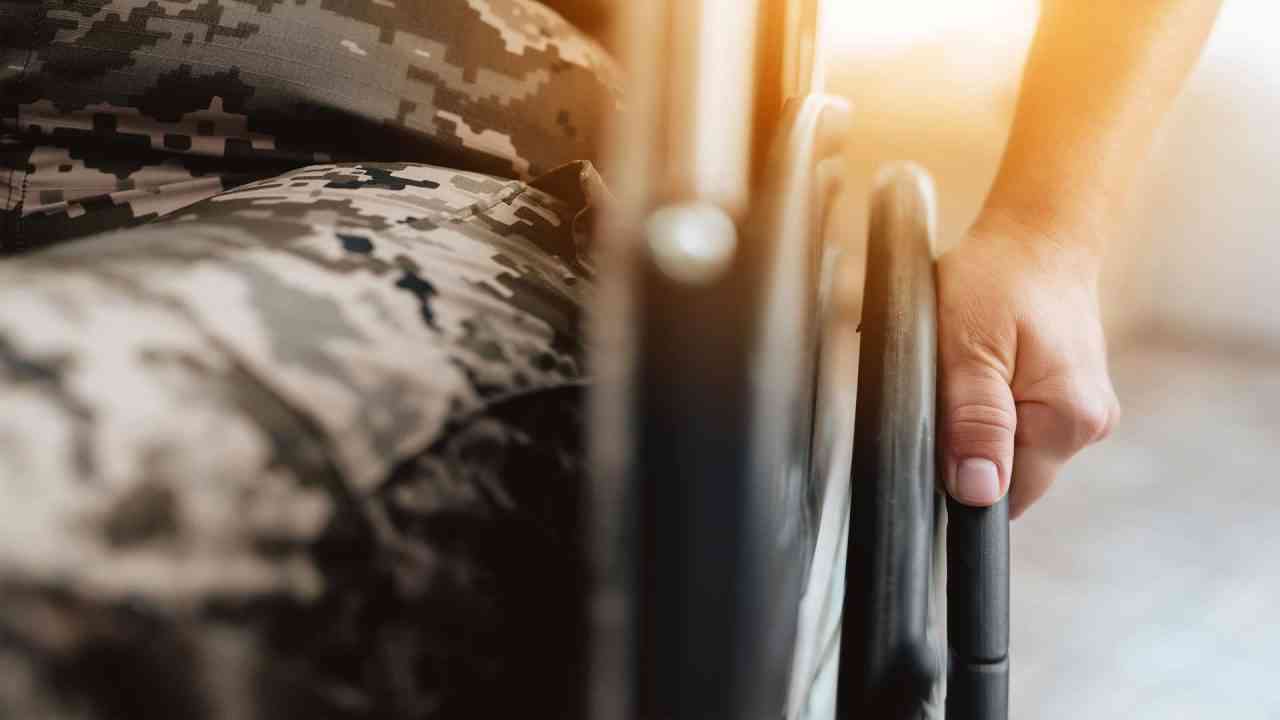
Alaska’s Veterans Affairs (VA) office is refusing to cover an effective, non-opioid treatment for veteran soldiers who now live in prolonged and excruciating pain. This is the experience of Alaska surgeons and medical device suppliers who have grown increasingly frustrated by the Alaska VA.
With the highest rate of veterans per capita in the nation, Alaska has many men and women who rely on VA healthcare to pay for critical medical intervention when necessary. But when it comes to some of the most debilitating neck, back and limb pain, there is one treatment Alaska’s VA office is now unwilling to cover: spinal cord stimulation.
In attempting to help Alaska veterans, area doctors say they are baffled and outraged by the VA’s stance.
A BREAKTHROUGH IN PAIN MANAGEMENT

Spinal cord stimulation (SCS) is a non-opioid, FDA approved alternative to alleviate severe suffering after other chronic pain treatments such as physical therapy, medications, injections and surgeries have failed.
Similar to a pacemaker, these stimulators include an implant that goes under the skin delivering mild electronic impulses near the spine, which disrupt pain signals to the brain and give patients long-sought-after relief.
“…the device can permanently change someone’s life for the better.”
Dr. Tom Grissom
Invented in the 1960s, these devices are considered a major breakthrough in pain management, and private insurance companies as well as Medicaid and Medicare cover their costs. Similarly, VA offices in states across the nation reimburse for this device. In Alaska, however, the VA appears to rarely approve the implants for enrollees in the VA system.
‘THERE ARE NO LEGITIMATE REASONS TO DENY’
According to Alaska doctors who work with veterans to implement SCS at the Algone pain center in Wasilla, this was not always the case. Up until about four years ago, the Alaska VA routinely covered spinal cord stimulators.
Around 2018, Alaska doctors say Alaska VA Chief of Staff Dr. Cynthia Joe began blocking nearly every request to have the VA cover spinal cord stimulators. Since the device and implementation cost between $35,000 to $40,000 dollars, it is well outside the price range most veterans can afford on their own.
Dr. Tom Grissom is the founder of Algone Pain Clinic, known as one of the state’s premier pain treatment centers. He said the Alaska VA, under Dr. Joe, will not allow doctors to bill for the most common type of condition which spinal cord stimulators are designed to address: post-laminectomy (or failed back surgery). Grissom said he is baffled and outraged at the VA’s stance.
“We don’t even get a reason. They just say no,” Grissom said. “And I’ll be realistic, there are no legitimate reasons. This is one of the only surgical technologies in the world that you can ‘try before you buy’ to see if it works, and deleterious side effects are almost nonexistent. A surgeon can do a trial-install to see if it will be effective for a patient’s pain management, and if successful, the device can permanently change someone’s life for the better.”
The Watchman contacted the VA, seeking an interview with Dr. Joe to better understand why the VA appears unwilling to cover SCS in veterans’ health plans. While Dr. Joe refused an interview, the VA sent several short email responses from its Alaska-based Chief of Public Affairs, Samuel Hudson.
The emails claim that not “all” spinal cord stimulator requests to the VA have been denied in recent years. According to Hudson, all SCS requests are first reviewed by pain management specialists at the Puget Sound VA to ensure they meet criteria – correct diagnosis, failed treatments, trials, etc. Hudson claimed that the Alaska VA approved 16 stimulators in fiscal year 2021 and two others in 2022. But it is unclear exactly where these approvals occurred, and the VA would provide no corroborating information to support their claim.
The Alaska Watchman interviewed each of the five SCS manufacturer’s representatives in Alaska, all of whom have data on every device sold and installed in the state of Alaska. Nevro, Boston Scientific, Medtronic, St. Jude’s (formerly ANS) and Stim Wave comprise the entire spectrum of SCS manufacturers. All five have had zero devices authorized for implantation by the VA in more than two years.
Amy Woodard, the manufacturer representative for Medtronic in Alaska, said the only feedback she has ever received from the VA as part of a denial was a statement that the device is “not medically necessary.”
Veterans are highly susceptible to chronic pain, which increases the risk of suicide and opioid addiction.
The Algone clinic claims it hasn’t had even one VA patient approved for SCS through the Alaska VA in more than two years, and Dr. Grissom said he doesn’t know of a single other Alaska clinic that has.
When asked about this, Hudson’s email stated that since 2014, the VA has contracted with a third-party company called TriWest to pay medical claims, and that questions about authorizations should be directed to TriWest leadership.
The Watchman’s questions were sent to TriWest Vice President of Alaska Operations, Mark Babbitt, to find out how many SCS they reimbursed for the Alaska VA over the past two years. TriWest sent a brief response from its media relations arm, which failed to answer the question about how many devices the company has paid for in Alaska. Instead, TriWest said it pays for claims which are “consistent with the VA’s authorizations for care.”
Hudson’s email noted that prior to 2014 the Alaska VA reimbursed “directly to community vendors.” This included authorizing SCS for the post laminectomy (or failed back surgery) diagnosis. Hudson’s responses did not say whether the VA’s authorization criteria for SCS have changed since contracting with TriWest.
‘WE SAW A DRAMATIC SHIFT’
Dr. Grissom said he knows 15 other Alaska surgeons who also offer SCS implants. He said all of them have failed to get the Alaska VA program to pay for the devices in recent years.
“All of us have the exact same problem,” Grissom said. “It isn’t VA negligence, or incompetence, it’s evil. This is the standard of care for every other VA in the nation.”
For the past five years Teal Bishop has worked as the Northwest district representative for Nevro, one of four major companies that manufacture spinal cord stimulators. She said all the other VA offices in the Pacific Northwest routinely approve SCS implants. Alaska is the stark exception.
“When I first started, I had VA patients who were getting approved for SCS,” Bishop recalled. “It wasn’t a ton, but then all of a sudden we saw a dramatic shift.”
Since every state VA office operates with a measure of autonomy, Dr. Joe has leeway to set policies for Alaska, Dr. Grissom noted. But the inability to provide SCS for Alaskan veterans confounds him, as veterans are highly susceptible to chronic pain, which increases the risk of suicide and opioid addiction, and Dr. Joe’s policy of flat refusal of this technology has the net effect of forcing Alaska Veteran’s to manage their pain with opioids.
“Clearly, it’s not a cost issue, because we removed that barrier.”
Dr Tom Grissom
According to Dr. Grissom, “The VA policy – and lack of any reason given – is outrageous given the body of scientific evidence supporting the effectiveness of this technology. Veterans who can’t or don’t want to take opioids are suffering needlessly, and often at levels of pain that are shocking. For them, the VA’s policy is inhumane.”
When asked whether he thought high costs were playing a role in the VA’s stance, Dr Grissom said, “No. We offered to accept insurance and compensation levels for both surgery, and the surgery center facility’s cost that are accepted in Washington, and the answer was still no. Clearly, it’s not a cost issue, because we removed that barrier.”
VA STUDY RECOMMENDS SCS IMPLANTS
The Alaska VA’s stance also appears to run contrary to the agency’s national push to reduce widespread opioid addiction and overdose among veterans. In 2013, the U.S. Department of Veteran Affairs launched a campaign to curb opioid prescriptions. Coined the “Opioid Safety Initiative,” the program focused on the highest risk groups – veterans who take high doses of pain medication. In seven years, the number of VA patients on opioids dropped by 64% from the peak in 2012. It wasn’t, however, all good news.
A detailed article published by the Washington Post this past August noted that the drop in opioid use came with a “significant increase in veteran suicides,” raising questions about whether veterans were getting adequate treatment for chronic pain.
In 2020, the VA itself funded a large-scale study to document the effectiveness of spinal cord stimulation. The study examined nearly 1,500 veterans who had received SCS after suffering from musculoskeletal disorders such as severe neck, back and limb pain. It found that “painful musculoskeletal disorders represent the largest cluster of medical conditions among veterans from the Afghan and Iraqi wars.”
“It never occurred to me until I moved to Alaska that an insurance company wouldn’t pay for this. It’s considered the standard of care in every other state in the US.”
Dr. Stephen Markenwich
Since 2000, over 5 million veterans receiving VA care were diagnosed with one or more musculoskeletal disorders, the study found.
Researchers also discovered that 92% of veterans with spinal cord stimulators had previously been on opioids attempting to alleviate their pain. After receiving the implant, however, there was a significant overall decrease in opioid use and dosage levels.
“Given the risks associated with opioids, a reduction in prescribed opioids is an important benefit of SCS implants,” the VA study concluded. “Thus, it is particularly important for veterans with chronic pain to have access to additional pain management strategies, such as SCSs, that can help manage pain.”
ALASKA POLICY ‘DOESN’T MAKE ANY SENSE’
Dr. Stephen Markenwich is the medical director at Algone where each week he installs multiple spinal cord stimulators for Alaskans who are not reliant on VA coverage. Prior to moving to Alaska this past fall, he installed about 80 of these devices annually for the past decade in North Dakota. The procedure takes about an hour and almost always results in rapid reduction of pain levels, he said.
“We never had any issues getting them approved at all,” Markenwich recalled of his time working with the North Dakota VA. “It never occurred to me until I moved to Alaska that an insurance company wouldn’t pay for it. It’s considered the standard of care.”
“Why is the VA not budging and really not even giving us the time of day to even look at it?” he added. “It really doesn’t make any sense.”
VA REFUSES TO HELP ALASKAN VETERAN
Recently, Algone doctors worked with a Mat-Su veteran, Ron Higgins, who in 2013 suffered a major car accident that crushed his pelvis and broke his femur. Since then, he has lived with debilitating pain.
In an attempt to demonstrate to Dr. Joe and the Alaska VA that spinal cord stimulators could effectively treat patients like Higgins, Algone doctors footed the bill to conduct a one-week trial on Higgins this past December.
Higgins said he felt life-changing and immediate relief, and during the trial was able to resume everyday activities like tying his own shoes, which had eluded him for eight long years.
Once the trial finished, however, the device was removed and Higgins’ debilitating pain returned almost immediately. Earlier this month, Dr. Grissom personally purchased a stimulator for Higgins at a substantial cost, and the surgery center of Wasilla graciously donated the use of their facility for the surgery. These actions were taken to help Higgins, since the VA refused to cover SCS, in spite of a successful trial installation conducted without reimbursement by the VA and with both patient and doctor agreeing on the success of the trial.
ALASKA WATCHMAN DIRECT TO YOUR INBOX
“As soon as you turn it on, the pain goes away,” Higgins relayed. “I haven’t turned it off since they put it in.”
Higgins said he feels like he can pretty much do everything he did prior to his accident, but it’s the little things that stand out.
“Some mornings in the past I wouldn’t get out of bed it hurt so bad,” he said. “Now I just stand right up. It’s really incredible.”
Higgins expressed frustration that Alaska VA staff never once mentioned spinal cord stimulation. He only discovered it after meeting with Algone doctors.
“The VA won’t even talk about it,” Higgins said. “It’s been out there all this time and to think I’ve lost eight years of my life barely surviving. I can’t wrap my head around why they’ll do this procedure everywhere else in the country, but not in Alaska.”
Higgins said he even attempted to have the VA office in Portland implant the device but was told he couldn’t because the Alaska VA would be billed, and they refused to pay.
CLASS ACTION LAWSUIT LOOMS
Given the Alaska VA’s reluctance to authorize SCS, Dr. Grissom said he is forming a coalition comprised of dozens of Alaska physicians who are now drafting a class action lawsuit on behalf of hundreds of Alaska veterans who could benefit from the SCS implants, but have been denied this life-changing technology.
“It’s something we are pursuing,” he said.
TAKE ACTION
The contacts below are for Alaska’s federal delegation, Dr. Cynthia Joe, and her superiors at the Alaska VA.
— Sen. Dan Sullivan contacts
— Sen. Lisa Murkowski contacts
— Rep. Don Young contacts
— Director of VA Alaska Health Care Thomas Steinbrunner: 907-257-5460
— Associate Director of VA Alaska Health Care Jennifer Price: 907-257-5460
— Chief of Staff for VA Alaska Health Care Dr. Cynthia Joe: 907-257-5460
— Contact the VA Office of the Inspector General to report inadequate patient care, or mismanagement of VA programs or government resources. Phone: 800-488-8244








7 Comments
The sentence were you guys mention that I am installing stimulators every week… It should say in patients who are NOT dependent on VA care. Otherwise you make it sound like I’m putting them in vets every week.
I hope that shining some light on this brings changes. I’m a veteran currently on this path with years and years of pain management due to spine damage. I had what my doctor described as a failed surgery last winter and am now back to medication, PT and steroid injections. The pain is a constant in my life and thinking about having it forever is daunting. Hopefully things will change at the Alaska VA for the better
Please do some research about Kratom! It can function as a non addictive alternative to opioids for pain management and is prescription free! It is even used to get people off of opioids and heroin.
I have been a patient at the AK VA. It is one of the finest VAs in the entire system. It cares and provides most the best care possible. It is a small VA which probably allows it to provide better care than most.
This sounds like a paid advertisement.
Blow those phone lines up people and pay attention at the voting booth. Only way to fix stupid!
Hello, in our world, few people worry about lawyers until they need themselves and if you have problems with the law, but you are afraid that the law will not be on your side, then you need to find a good lawyer, nowadays everyone should have a lawyer who will help and advise his client in any situation. And if you haven’t found a good et lawyer yet, then you need to contact Paul Mankin